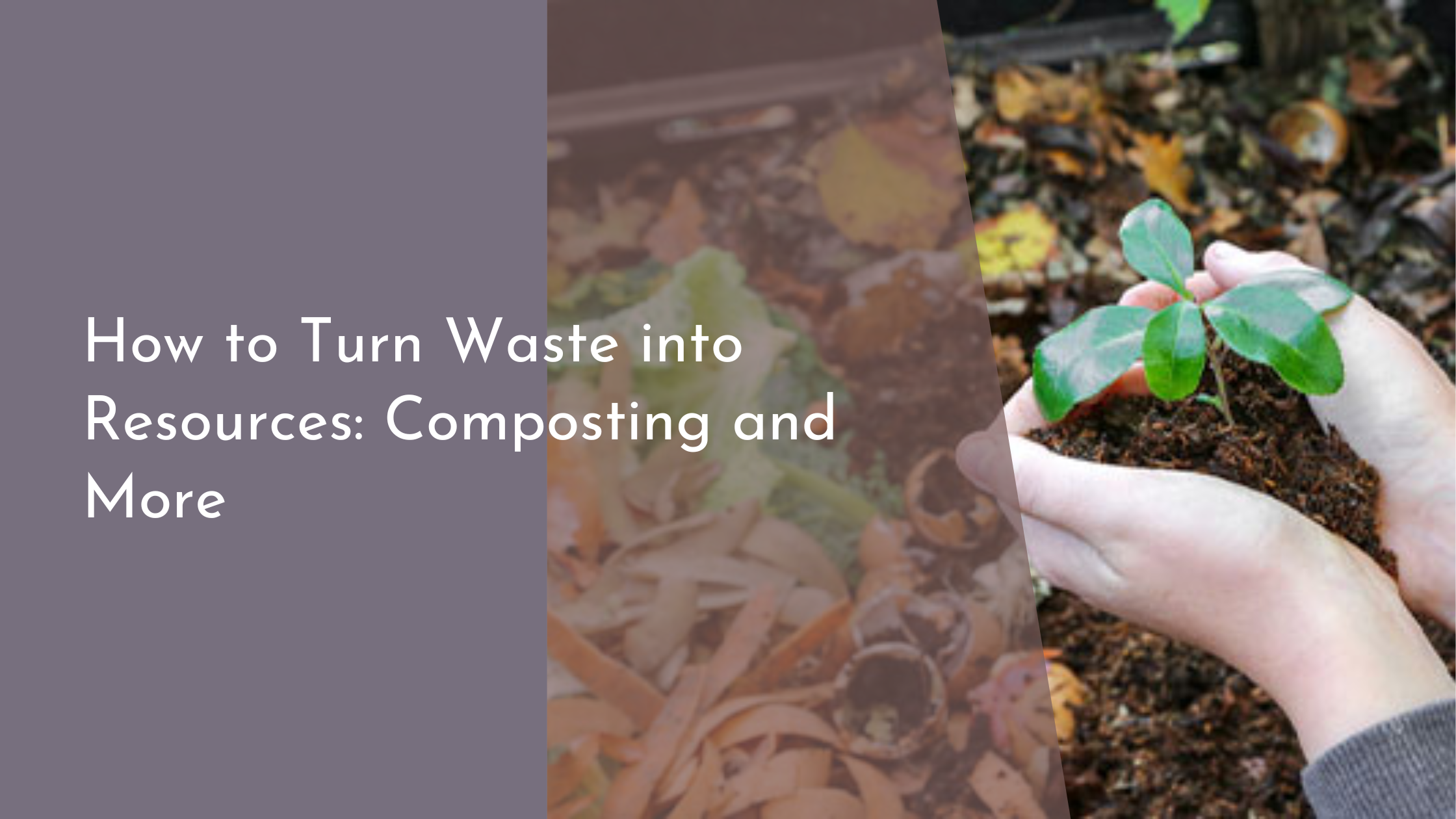How to Turn Waste into Resources: Composting and More
In a world increasingly conscious of environmental sustainability, turning waste into resources is a transformative approach that benefits both individuals and the planet. From composting kitchen scraps to exploring innovative upcycling techniques, there are numerous ways we can minimize waste and make a positive impact. This article delves into the basics of composting, creative ways to transform kitchen waste, and cutting-edge upcycling methods that contribute to a more sustainable lifestyle. Let’s embark on this journey towards a greener future together!
Understanding the Basics of Composting
Composting is a natural process that transforms organic waste into nutrient-rich soil. At its core, composting involves the decomposition of organic materials by microorganisms under controlled conditions. The essential components for successful composting include a balance of nitrogen-rich “green” materials such as fruit and vegetable scraps and carbon-rich “brown” materials like dried leaves and twigs. With the right balance, moisture, and aeration, a compost pile can become a thriving ecosystem that efficiently breaks down waste.
There are several methods of composting, each suited to different living situations and levels of involvement. Backyard composting is a popular choice for those with garden space, while vermicomposting, which uses worms to digest organic matter, is ideal for indoor setups. For urban dwellers with limited space, community composting programs offer a convenient way to contribute to local composting efforts. Understanding these basics empowers us to choose the right method and start turning waste into valuable compost.
Transforming Kitchen Scraps into Gold
Kitchen scraps are often seen as mere waste, but they are actually a treasure trove of nutrients waiting to be harnessed through composting. Common kitchen waste like fruit peels, coffee grounds, and eggshells can be easily composted to enrich garden soil. By collecting these scraps in a dedicated container, you can significantly reduce household waste and contribute to a healthier environment.
In addition to traditional composting, many creative techniques can help repurpose kitchen waste. For example, citrus peels can be used as natural cleaners, while spent coffee grounds can serve as an excellent exfoliant in homemade beauty products. Incorporating these practices into your daily routine not only reduces waste but also brings a sense of fulfillment from creating useful products from what would otherwise be discarded.
Exploring Innovative Upcycling Techniques
Upcycling is a creative process that involves transforming waste materials into new, functional items. Unlike recycling, which breaks down waste into raw materials, upcycling retains the original structure and creatively repurposes it. This process can range from turning old jars into decorative candle holders to transforming worn-out textiles into stylish tote bags. Upcycling not only reduces waste but also allows for personal expression through creativity.
Innovative upcycling techniques are continually evolving, with artists and designers leading the charge. For instance, some designers create furniture from discarded pallets, while others turn plastic bottles into artistic installations or functional products like planters. By exploring these techniques, individuals can find inspiration to reduce waste in their lives and contribute to a sustainable movement that emphasizes the value of every material.
Embracing a Greener Future: A Joyful Conclusion
Embracing sustainable practices like composting and upcycling not only benefits the environment but also enriches our lives. By turning waste into resources, we actively participate in a cycle that nourishes the earth and reduces our ecological footprint. As we adopt these practices, we cultivate a deeper connection with nature and a greater appreciation for the resources we often take for granted.
In conclusion, the journey towards a greener future is one filled with creativity, mindfulness, and joy. By incorporating composting and upcycling into our daily routines, we become part of a larger movement that values sustainability and environmental stewardship. Together, we can create a world where waste is diminished, resources are cherished, and future generations inherit a planet that thrives. Let us embrace these changes and look forward to a brighter, greener tomorrow.
Turning waste into resources is not just an act of environmental responsibility; it’s a celebration of creativity and sustainability. Through composting and upcycling, we have the power to transform our waste into valuable assets that benefit us and our planet. By embracing these practices with enthusiasm and optimism, we can inspire others to join us in this meaningful pursuit. Let’s make the most of what we have, reduce our impact, and create a legacy of environmental mindfulness for future generations!

